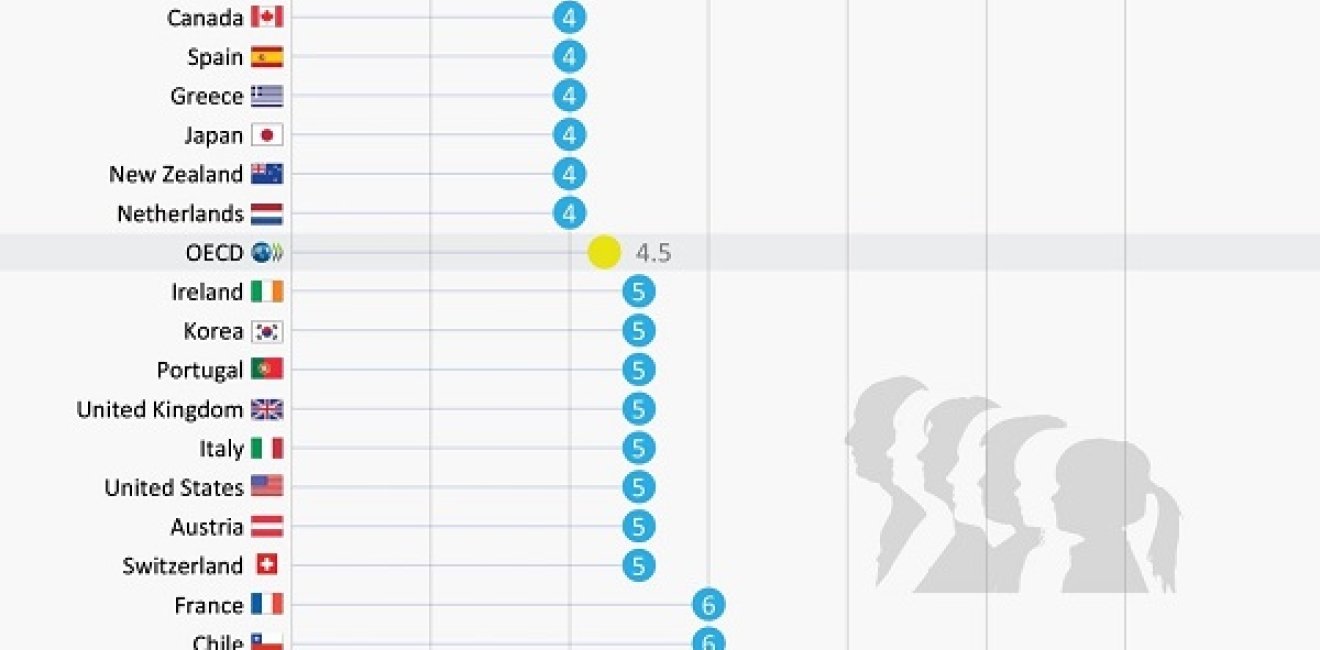
A blog of the Latin America Program
It takes six generations to break into the middle class in Argentina, according to a new study from the Organization for Economic Cooperation and Development. The report, “A Broken Social Elevator? How to Promote Social Mobility,” profiles 24 countries to compare social mobility, as measured by the number of generations it takes for a low-income family to earn the country’s mean income. For Argentina, OECD data suggest that the working child of a low-income family should expect his or her great-great-great grandchild to earn the average national income.
That is well below the OECD average of 4.5 generations, but it is not particularly surprising, given the extreme and chronic income inequality in Latin America. For example, Chile earns the same ranking as Argentina. In Brazil, it takes nine generations to achieve a middle class income.
But the report also reflects poorly on European countries, including France and Germany, where it takes six generations to reach middle class status. In the United States, the United Kingdom, Austria and Switzerland, it takes five generations. Globally, the OECD identifies common factors limiting intergenerational social mobility, including “sticky floors” (e.g., children of poorly educated parents are more likely to have low educational achievement themselves, in what the OECD calls the “transmission of disadvantages to children”) and “opportunity hoarding” (e.g., children often end up with similar occupations as their parents).
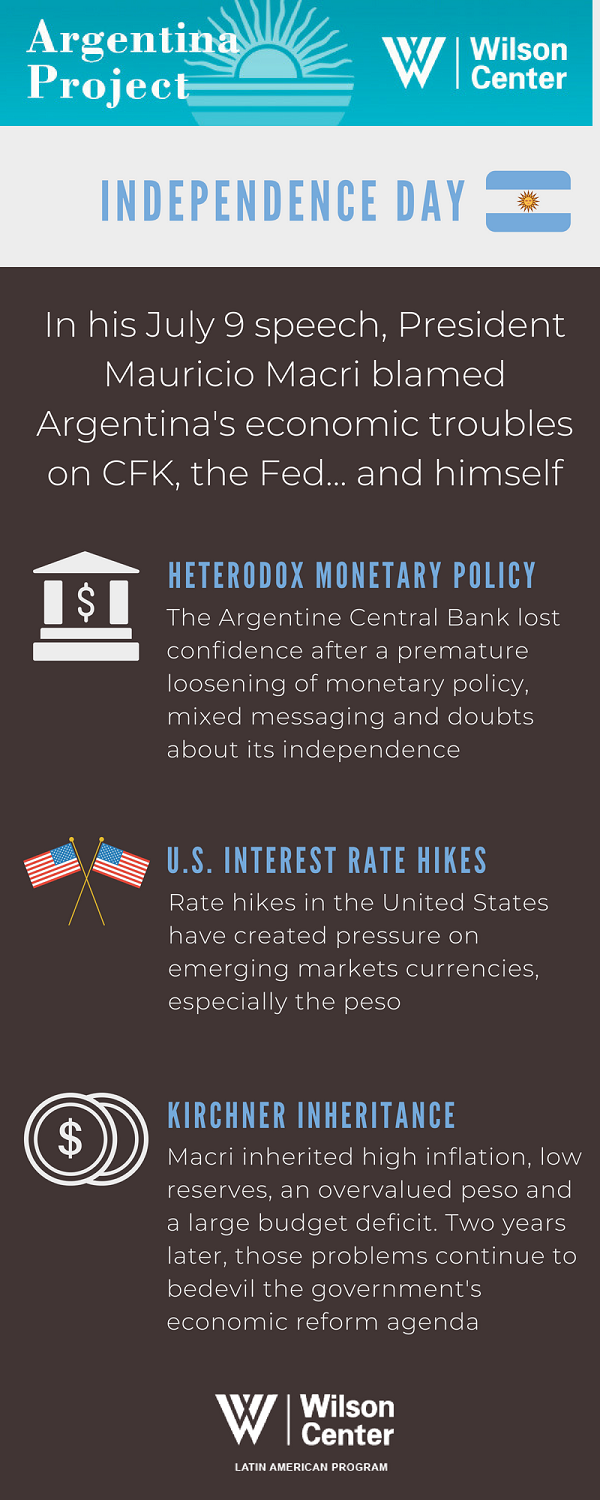
Back on the horse: U.S. friendlies
After a disappointing World Cup for Argentina, which did not manage to advance beyond the Round of 16, the Associación de Fútbol Argentino announced that the national team will play two friendly matches in September in the United States, against Colombia and Guatemala. The Guatemala match will take place September 7 at the Los Angeles Memorial Coliseum, and the Colombia match will be held September 11 at Metlife Stadium in New Jersey.
As the name suggests, the friendlies play no role in determining Argentina’s eligibility for the 2022 World Cup in Qatar. So not surprisingly, the drama surrounding the games is focused instead on Lionel Messi – specifically, whether he’ll show up. Messi famously retired after Argentina’s 2016 Copa América loss in the finals to Chile. (“For me, the national team is over,” he said after missing a penalty shot in the grueling match. “I’ve done all I can.”) Messi, of course, returned to the national team for this year’s World Cup in Russia. “Amo demasiado a mi país y a esta camiseta,” he said after an outpouring of public support. But after another disappointing performance in an international tournament, there are renewed doubts about his future with the selección.
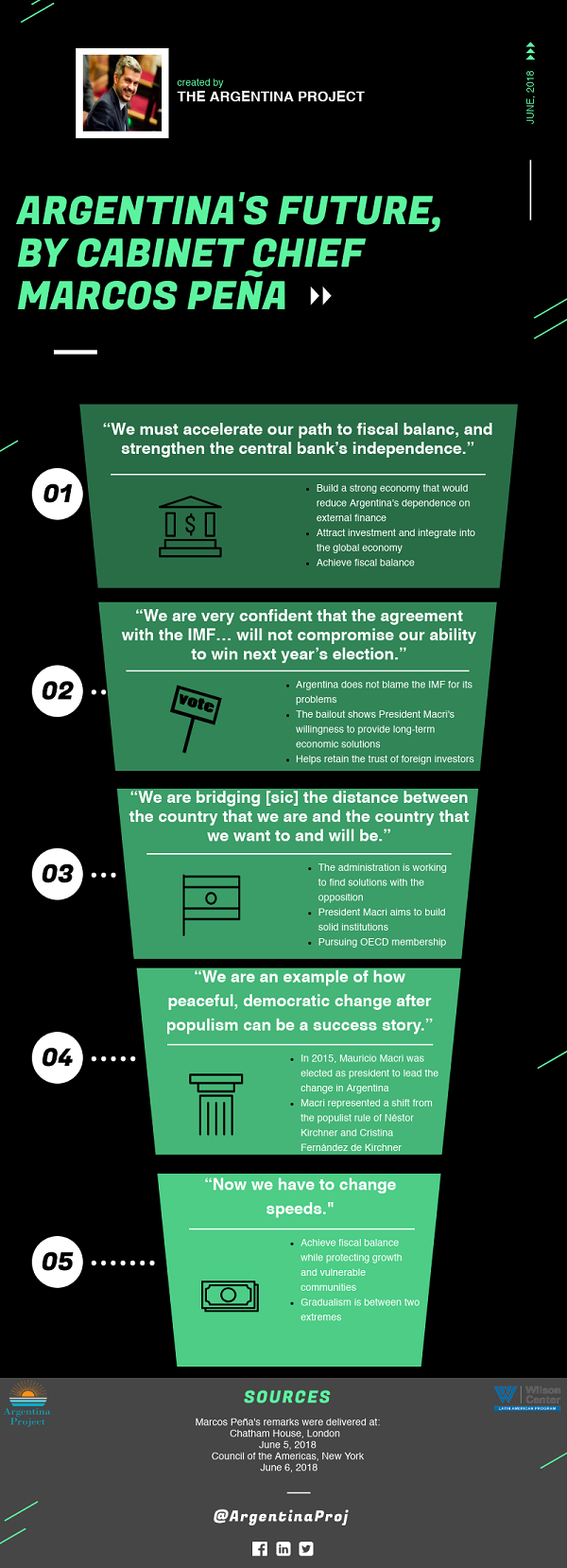

Latin America Program
The Wilson Center’s prestigious Latin America Program provides non-partisan expertise to a broad community of decision makers in the United States and Latin America on critical policy issues facing the Hemisphere. The Program provides insightful and actionable research for policymakers, private sector leaders, journalists, and public intellectuals in the United States and Latin America. To bridge the gap between scholarship and policy action, it fosters new inquiry, sponsors high-level public and private meetings among multiple stakeholders, and explores policy options to improve outcomes for citizens throughout the Americas. Drawing on the Wilson Center’s strength as the nation’s key non-partisan policy forum, the Program serves as a trusted source of analysis and a vital point of contact between the worlds of scholarship and action. Read more


Argentina Project
The Argentina Project is the premier institution for policy-relevant research on politics and economics in Argentina. Read more

Explore More in Weekly Asado
Browse Weekly Asado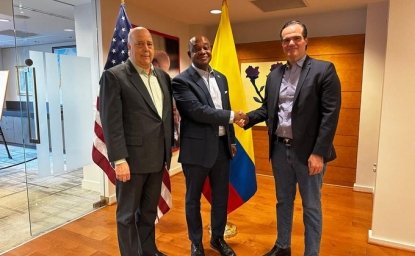
Caught Up in the US-Colombia Spat, International Diplomats
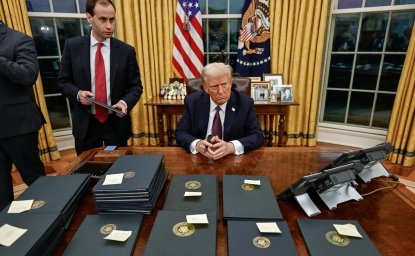
Latin America Under a Microscope
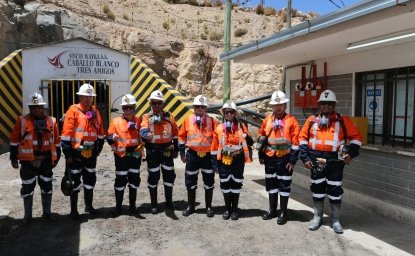
Amid Crisis in La Paz, Could 2025 See a Thaw in US-Bolivia Relations?

